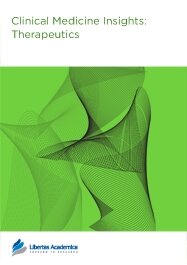

Publication Date: 09 Oct 2009
Type: Review
Journal: Clinical Medicine Insights: Therapeutics
Citation: Clinical Medicine: Therapeutics 2009:1 1457-1463

Anemia resulting from a relative deficiency of erythropoietin commonly complicates chronic kidney disease (CKD). With the introduction of recombinant erythropoietin two decades ago, there has been a dramatic reduction in the need for blood transfusions in CKD patients. Epoetin alpha is a first generation erythropoiesis stimulating agent (ESA) that needs to be administered frequently because of its short half-life. Methoxy ethylene glycol-epoetin beta is a longer acting ESA that acts as a continuous erythropoietin receptor activator and is given once every 2 to 4 weeks. In short term clinical studies, Methoxy polyethylene glycol-epoetin beta has been observed to be comparable with other ESAs with regard to safety and efficacy in maintaining hemoglobin levels in the target range. However, hemoglobin is no longer a clinically valid surrogate for safety i.e. correction of anemia does not translate into better clinical outcome. Long term studies evaluating hard end-points such as death and cardiovascular events are lacking. Methoxy polyethylene glycol-epoetin beta has been approved for use in the European Union since 2007 while its use in the United States is prohibited on legal grounds.
PDF (549.22 KB PDF FORMAT)
RIS citation (ENDNOTE, REFERENCE MANAGER, PROCITE, REFWORKS)
BibTex citation (BIBDESK, LATEX)


Working with the editorial staff and reviewers for Clinical Medicine Insights: Therapeutics was a positive experience. The online submission/revision process was easy and staff were readily available to answer any questions. Reviewers were knowledgeable, lending expert comments that allowed for improvement in content information. I highly recommend others practitioners and researchers to consider Libertas Academica journals for their next publication.

All authors are surveyed after their articles are published. Authors are asked to rate their experience in a variety of areas, and their responses help us to monitor our performance. Presented here are their responses in some key areas. No 'poor' or 'very poor' responses were received; these are represented in the 'other' category.See Our Results
Copyright © 2013 Libertas Academica Ltd (except open access articles and accompanying metadata and supplementary files.)
Facebook Google+ Twitter
Pinterest Tumblr YouTube